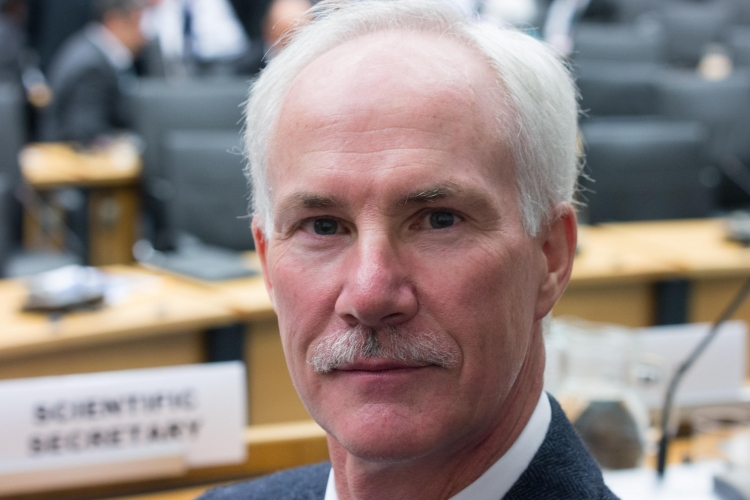Four years after the Fukushima Daiichi nuclear power plant accident in Japan, the international nuclear community is gathering once again to discuss the lessons that have been learned, and explore avenues for the improvement of operational safety worldwide.
Operational safety involves the proper running and maintenance of a nuclear power plant, as well as ensuring that all the workers and operators follow the agreed safety and security guidelines and procedures.
In a question and answer session, Peter Tarren, Head of the IAEA’s Operational Safety Section, has provided some insights ahead of the 23-26 June International Conference on Operational Safety, to be held at IAEA headquarters in Vienna.
Q: What is the most pressing issue in the world of operational safety?
“Preparing for the unexpected.
“Fukushima showed us that — very rarely — things can happen that will affect multiple backup systems. And the questions for the industry are: ‘How do you cope with those circumstances when multiple systems have been affected by a very extreme event, leaving you without reliable backup mechanisms?’ and ‘How do you manage when it might be difficult to physically get to and turn on the backup systems because there might be floodwater or damage or high radiation areas?
“Coping with those unexpected conditions — that’s the real challenge.”
Q: What is the IAEA’s role in resolving or helping Member States deal with this issue?
“First of all, the responsibility for nuclear safety absolutely rests with the operators of the plant.
“But what the IAEA does is create safety standards that are based on a worldwide consensus from the nuclear industry on what constitutes high standards of nuclear safety. We can also provide advice, guidance and review services, which will help nuclear power plant operators understand how they compare with those high standards or we can train them to help them reach these high standards.”
Q: Why is operational safety so important?
“Maintaining and operating the plant within its design envelope is important because a lot of work was put into these plants at the design stage and operating organizations then have the responsibility to maintain the integrity of the design. So the operators have to do their part, the maintainers have to do their part, and all the other people who interact with the plant have to do their part and behave in a way that doesn’t infringe on the original design assumptions.”
Q: Was the Fukushima accident a result of failure in operational safety?
“That’s too simple a view I think. The IAEA has issued a very comprehensive report (to Member States) on Fukushima and the causes are many-faceted. There were some regulatory issues, some behavioural issues, and there were some design aspects that weren’t as robust as they should have been. What that meant was that when this highly unusual event happened, overall, the plant wasn’t prepared to deal with it.
“From an operational safety perspective, I think the operators and the maintainers really did a very good job on the day, but were overwhelmed by extremely challenging circumstances.”



